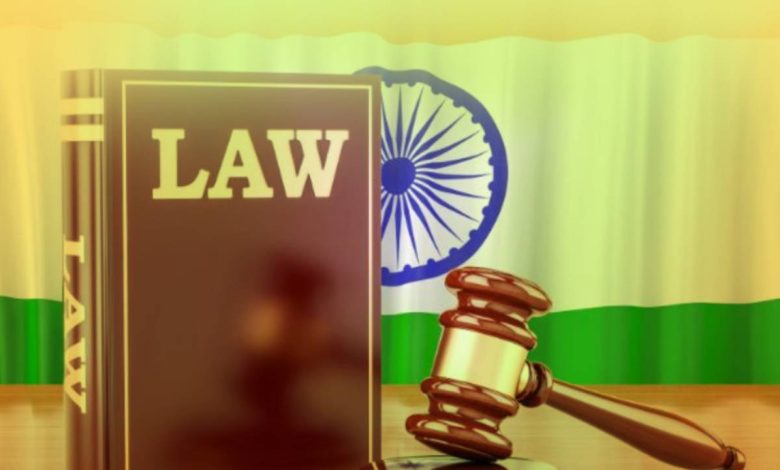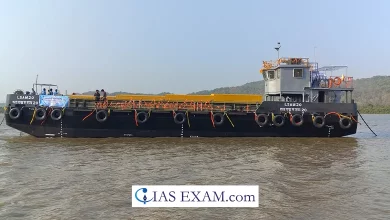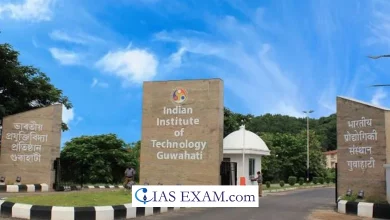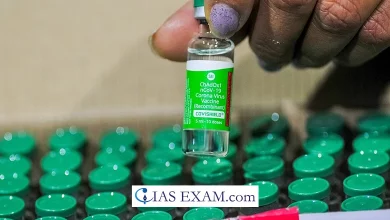Daily Current Affairs for UPSC
Bharatiya Nagarik Suraksha Sanhita, 2023
Syllabus- Indian Polity and Governance [GS Paper-2]

- Context- The Bharatiya Nagarik Suraksha Sanhita, 2023 was introduced in the Lok Sabha, proposing amendments to the Criminal Procedure Code (CRPC), which governs the criminal justice system.
Key Highlights
- Wider use of technology: Trials, appeals and the recording of statements, including reports by civil servants and police officers, can be conducted electronically.
- The statement of the accused may also be recorded by video conference.
- Summons, permits, documents, police reports, and evidence can be issued electronically.
- The search and seizure of objects and property, the forensic expert’s visit to the crime scene and the recording of the victim’s statement must be recorded by audio and video, preferably by mobile phone.
- The name and address of the arrested accused and the nature of the offense shall be maintained by the designated officer in each police station and district and shall be prominently displayed in digital mode in each police station and district headquarters.
- Information can also be sent to the police electronically, and it must be registered with the sender’s signature within three days.
- Communication devices: The draft adds electronic communication, including “communication devices” to the invitation to produce a document.
- When ordered by a court or police, a person must produce any documents – and now devices – likely to contain digital evidence for an investigation.
- Electronic communication is defined as “the transmission of any written, oral, visual information or video content (either person-to-person, device-to-device, or person-to-device or device-to-person).
- Use of handcuffs: The police may authorize the use of handcuffs when arresting a person who has escaped from custody or is a repeat offender of organized crime, terrorism, drug crime, illegal weapons possession, murder, rape, acid assault, forgery, human trafficking, child abuse, sex crime or crime against the state.
- Special protections: Article 41A of the CrMK, which has a visible protection against arrest, will be renumbered, Article 35.
- It has an additional provision: no one can be arrested without prior permission from a lower officer, if the offense is punishable by less than three years or if the person has been ill for more than 60 years.
- After receiving information about comprehensible cases where the crime lasts 3-7 years, the police will conduct a preliminary investigation to determine if it is a prima facie case and follow up within 14 days.
- Petitions for leniency: In death penalty cases, there is a procedural provision regarding the time limits for filing leniency petitions.
- After receiving information from the prison authorities about the processing of the death row inmate’s petition, he or his legal heir or next of kin can send an apology to the governor within 30 days.
- If rejected, the person can appeal to the president within 60 days.
- The president’s order cannot be appealed to the court.
- Sanction assigned to the prosecutor: The government must make a decision whether or not to prosecute the official within 120 days after receiving the request.
- If the government does not do this, the sanction will be considered fulfilled.
- Penalties are not required for sex crimes, human trafficking, etc.
- Arms in Procession: Section 144A of CrPC empowers District Magistrates to prohibit the carrying of arms in any procession, mass exercise or mass training for the maintenance of public peace.
- While Section 144 of the Penal Code retains the provisions authorizing the DM to issue orders in case of urgent disturbances or perceived danger, the provision prohibiting the carrying of weapons is not mentioned.
- Non-arrest samples: The bill includes provisions that would allow a judge to compel someone to provide samples of their signature, handwriting, voice or fingerprints for testing without arrest.
- Detention by the police: There are provisions that allow the police to arrest or remove persons who resist, refuse or ignore preventive measures as directed.
- Trial in the absence of the accused: The Code of Criminal Procedure currently requires the recording of evidence in the absence of the accused, hearings in absentia are not allowed.
- LHowever, the draft law provides that if the accused is not present, the court can start the trial. 90 days from the date of indictment.





.png)



